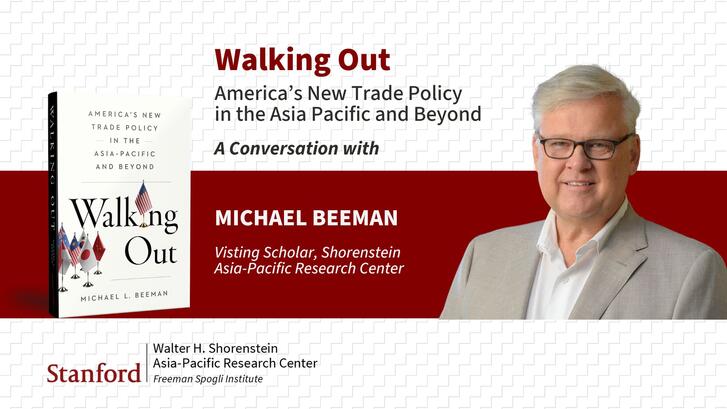Defying the (Autocratic) Odds: A Conversation with María Corina Machado, Leader of Venezuela’s Democratic Movement

This past summer, Venezuela's presidential election was overshadowed by Nicolás Maduro's attempt at large-scale electoral fraud. Despite these efforts, the Venezuelan democratic movement successfully provided evidence showing that their candidate, Edmundo González Urrutia, had won with nearly 70% of the vote. In response, the Maduro regime has escalated its repression of opposition leaders and advocates of democratic reforms, deepening political tensions and raising serious concerns about the country's democratic future.
On Monday, November 18, the Center on Democracy, Development and the Rule of Law is honored to host María Corina Machado, the leader of the Venezuelan pro-democracy movement and the main architect of the July 28 electoral victory, for a video address to the Stanford community sharing her experiences and perspectives on sustaining democratic resilience in the face of authoritarianism. The conversation will be moderated by Larry Diamond, the Mosbacher Senior Fellow in Global Democracy at the Freeman Spogli Institute for International Studies (FSI). Together, they will explore Venezuela’s current political challenges, the critical role of civic engagement, and strategies for fostering democratic transitions in restrictive environments.
The event will conclude with an interactive Q&A session, allowing students, faculty, and the greater Stanford community to engage directly with Ms. Machado and gain deeper insights into her experiences.
This event is co-sponsored by the Center on Democracy, Development and the Rule of Law (CDDRL) and the Neukom Center for the Rule of Law.
speakers

María Corina Machado
María Corina Machado is the leading figure of the Venezuelan democratic movement and was the central architect of the historic victory of Edmundo González in the July 28th, 2024, presidential election. Her leadership and vision unified Venezuela's pro-democracy forces during a pivotal moment in the country's history.
Machado won the Venezuelan opposition primaries on October 22nd, 2023, with an overwhelming 92.35% of the vote. Despite her landslide victory, she was illegally disqualified from running by the regime in a blatant move to undermine the democratic process. Undeterred, she continues to lead the fight for freedom and democracy in Venezuela, inspiring millions to stand up against authoritarianism.
Her tireless work in the face of adversity has made her a symbol of hope and resistance for Venezuelans and a crucial voice in the global conversation on democracy and human rights.
Machado holds a degree in Industrial Engineering from the Universidad Católica Andrés Bello (UCAB) and a specialization in Finance from the Instituto de Estudios Superiores de Administración (IESA). She has also taught Human Resources Management in the Industrial Engineering Department at UCAB. In 2009, she participated in the prestigious World Fellows Program at Yale University. She is the recipient of the 2024 Sakharov Prize, presented by the European Parliament, and the 2024 Václav Havel Human Rights Prize, presented by the Parliamentary Assembly of the Council of Europe (PACE) in Strasbourg.
Machado is also the founder and national coordinator of the political movement Vente Venezuela and co-founder of the Venezuelan civil association Súmate.

Larry Diamond
Larry Diamond is William L. Clayton Senior Fellow at the Hoover Institution, Mosbacher Senior Fellow in Global Democracy at the Freeman Spogli Institute for International Studies (FSI), and a Bass University Fellow in Undergraduate Education at Stanford University. His research focuses on global trends affecting freedom and democracy, and U.S. and international policies to advance democracy and counter authoritarian influence. He was the founding coeditor of the Journal of Democracy and he remains a consultant to the National Endowment for Democracy. Among his books is Ill Winds: Saving Democracy from Russian Rage, Chinese Ambition, and American Complacency.
Hauck Auditorium
David and Joan Traitel Building, Hoover Institution (435 Lasuen Mall, Stanford)

 FSI researchers strive to understand how countries relate to one another, and what policies are needed to achieve global stability and prosperity. International relations experts focus on the challenging U.S.-Russian relationship, the alliance between the U.S. and Japan and the limitations of America’s counterinsurgency strategy in Afghanistan.
FSI researchers strive to understand how countries relate to one another, and what policies are needed to achieve global stability and prosperity. International relations experts focus on the challenging U.S.-Russian relationship, the alliance between the U.S. and Japan and the limitations of America’s counterinsurgency strategy in Afghanistan.











